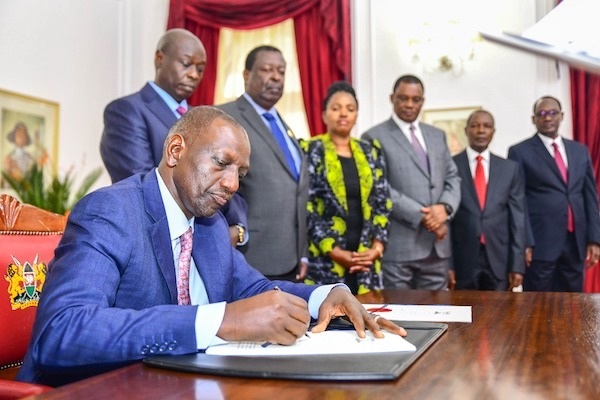The evolving digital landscape in Africa is creating opportunities for governments to generate revenues for the development of their countries. These changes highlight the commitment of governments to keeping pace with the rapid growth of the digital economy.
On Monday, June 26, President Ruto signed Kenya’s Finance Bill 2023 into law. This new law brings significant changes to the digital economy, affecting digital content creators, crypto traders, and digital lenders. Effective July 1, 2023, the bill introduces new tax implications and regulations.
Digital content creators will now be taxed on their earnings from digital content, with a 1.5% withholding tax applied to their income. This expansion aims to include various forms of electronically offered content, such as advertisements, sponsorships, subscriptions, and merchandise sales, within the scope of taxation.
Crypto traders face the introduction of a digital asset tax (DAT) on earnings obtained from the transfer or trade of digital assets, including cryptocurrencies and Non-Fungible Tokens (NFTs). Platform owners will deduct 3% of the digital asset's value, with non-resident owners required to remit the tax within 24 hours after deduction. The short period for deductions and the taxation of turnover rather than gains may pose challenges for crypto traders.
The bill also broadens the definition of 'fees' to cover charges associated with lending activities by digital lenders. This means that all costs linked to digital lending transactions, including fees charged by digital lending apps, will be subject to excisable duty. Consequently, borrowing from digital lending platforms may become more expensive.
Kenya's Finance Bill 2023 represents the country's adaptation to the evolving digital landscape, aiming to capture revenue and ensure fairness. Industry players must adjust their practices and business models accordingly to comply with the new regulations.
Digital Service Tax (DST) is a tax imposed on income generated from services offered through a digital marketplace (a platform facilitating electronic interactions between buyers and sellers). It was introduced in the Finance Act 2020. The rate of DST is 1.5% of the gross transaction value, which includes payments received for digital services and commissions or fees paid to digital marketplace providers for platform usage.
These changes highlight Kenya's commitment to keeping pace with the rapid growth of the digital economy and aligning its regulatory framework with global trends.
Hikmatu Bilali



















